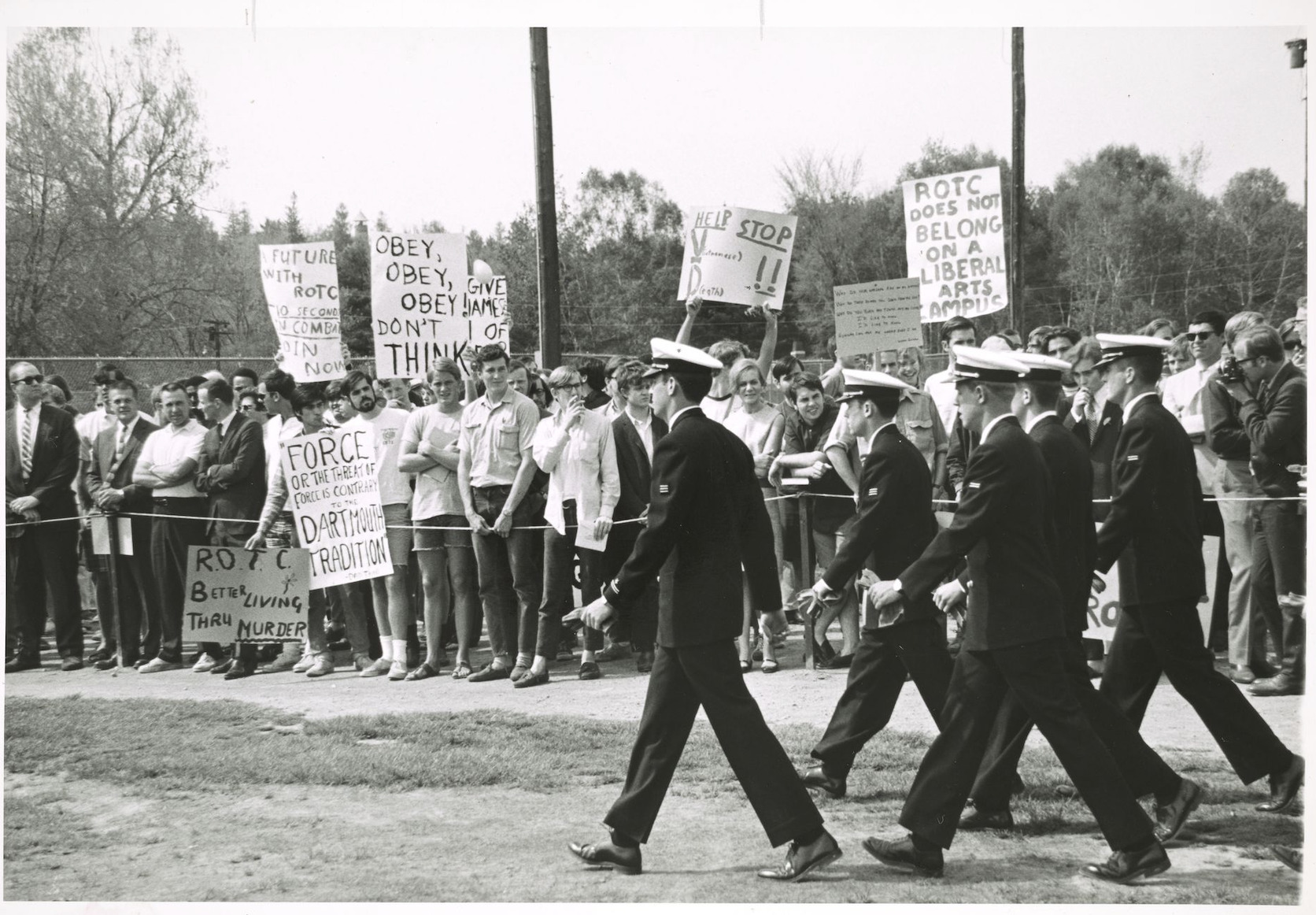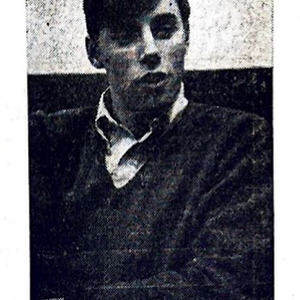Duty, Honor, Resistance: The History of ROTC at Dartmouth from the Cold War Era to Today
A Dartmouth Vietnam Project Exhibit
By Claire Betzer '23, Connor Norris '25, Kate Packard '22
ROTC and the U.S. Military at Dartmouth College in the Cold War Era
The College’s most visible connection to the U.S. Armed Forces lies in its Reserve Officer Training Corps (ROTC) program. The Army, Navy, and Air Force each once had robust and popular ROTC programs at Dartmouth, particularly during the Vietnam War Era in the 1950’s and 1960’s. The establishment of and participation in ROTC at Dartmouth was heavily influenced by external forces, such as the political and military situation at a given time. In this exhibit, we will explore the history of ROTC at Dartmouth, examining the program’s history within the context of the events before, during, and after the Cold War.
We begin by investigating how ROTC came to be institutionalized at Dartmouth, paying special attention to the draft during the Cold War. We then move to focus specifically on the Vietnam Era. Within that time period, we examine the variety of motivations behind a young man’s choice to join ROTC, which ranged from financial need to a fear of the draft to a sense of duty: each was driven by the political landscape of the time. We look at the intersection between antiwar activism, which was rampant during the Vietnam War, and ROTC at Dartmouth. Then, the paths taken by ROTC cadets during the Vietnam Era are examined. While some went on to serve, many others deferred service to pursue higher education instead. We note that Dartmouth abolished ROTC in 1969 as a result of extensive heated protests spearheaded by Dartmouth students, culminating in a takeover of Parkhurst Hall. While the absence of ROTC at Dartmouth only lasted six years, it was reinstated in an incredibly diminished capacity compared to its former grandiosity. We examine the reasons and reactions behind this reinstatement.
Navigating the Exhibit
Our exhibit consists of eight pages, including this one, as well as a bibliography page. All pages are listed at the top of this page and are linked below as well. While you may use the table of contents to jump around in the exhibit, we recommend going through the exhibit in order, as each page builds off of the previous. A description of the contents of our exhibit can be found further down on this page.
Table of Contents
- Duty, Honor, Resistance: The History of ROTC at Dartmouth from the Cold War Era to Today (this page)
- Through the Looking Glass: Towards a Better Understanding of ROTC's Roots at Dartmouth
- A Multiplicity of Motives Influenced By Political Pressures: Joining ROTC in the Vietnam Era
- When Push Comes to Shove: Antiwar Activism and ROTC
- A Horizon of Social Possibilites: Paths Beyond ROTC
- Change in Action: Abolishing ROTC at Dartmouth
- Reviving ROTC: The Influence of Alumni and New Military Needs
- Our Dartmouth Vietnam Project Interviews
- Bibliography
We would like to dedicate this exhibit to Ivars Bemberis ‘64, Joe Nathan Wright ‘68, and Peter Sorlien ‘71.
Earlier this spring, we were each fortunate enough to have interviewed these three alumni for the Dartmouth Vietnam Project: Ivars Bemberis '64, Joe Nathan Wright '68, and Peter Sorlien '71. Bemberis, Wright, and Sorlien were each involved in ROTC during their time at Dartmouth. More information about each narrator can be found on the interviews page. Throughout the exhibit, we have integrated case studies of each narrator within the exhibit: a case study on Wright is included on the motivations page, one on Sorlien is included on the antiwar activism page, and the final case study on Bemberis is included on the page detailing paths taken beyond ROTC. At the end of the exhibit, we offer more information on the stories of Bemberis, Wright, and Sorlien. On the interviews page, we have also provided links to the interview recordings and transcripts for each. We do encourage you to listen to the interviews–we are very fortunate to have met and interviewed these alumni and feel so grateful to have the opportunity to share their stories.





